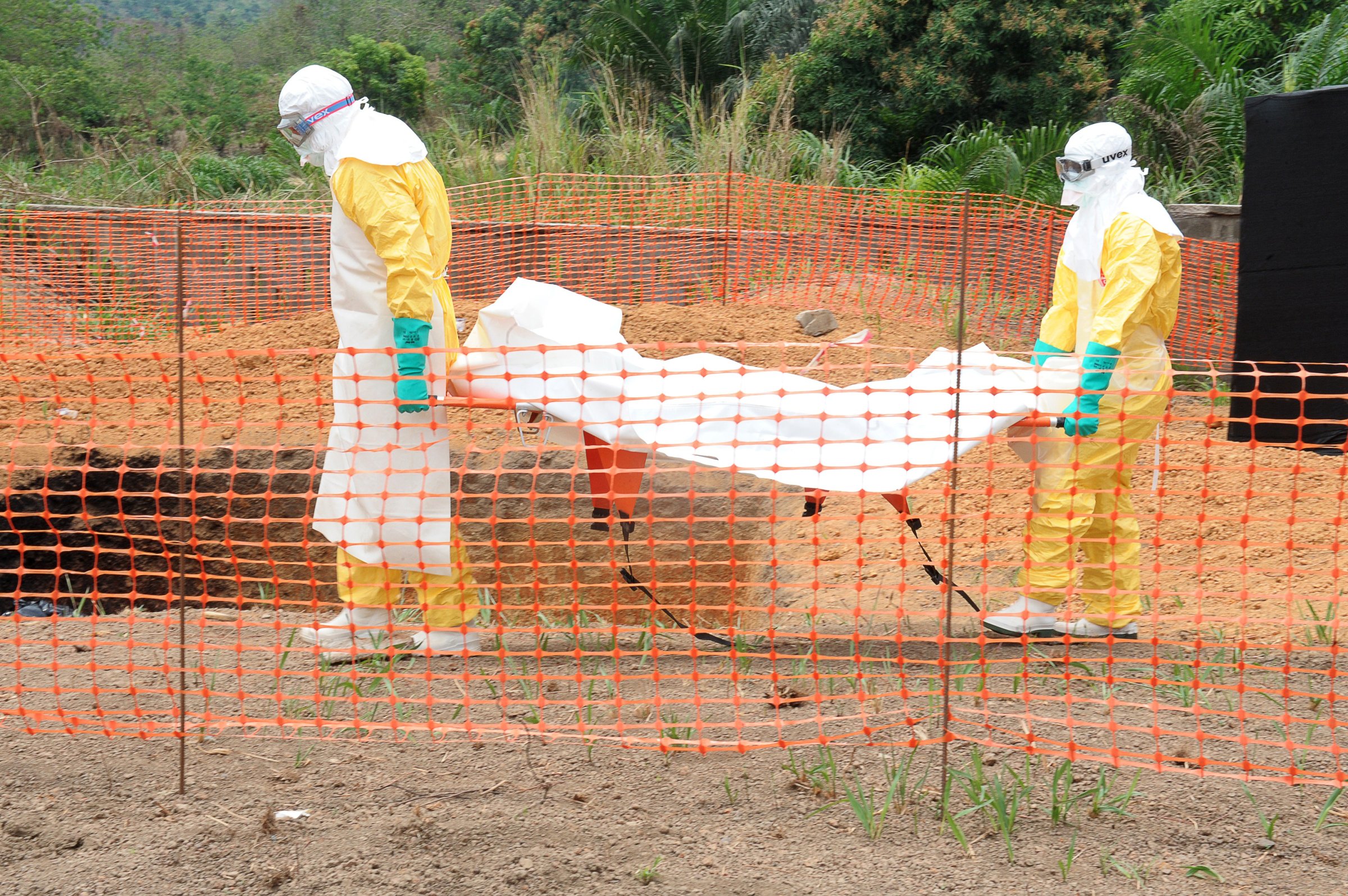
A Liberian asylum-seeker was tested for Ebola-like symptoms at a British immigration center earlier this week, The Telegraph reported Thursday. The day before, media outlets said another man had been similarly examined in Birmingham, England. Both tested negative for the often-fatal virus.
The United Kingdom’s Department of Health said that Ebola “is not an issue that affects the UK directly.” It added that should an infected person arrive in the UK., there are “experienced people who are ready to deal with [Ebola] if it were to arrive here.” Two agencies under the Department of Health, the National Health Service and Public Health England further pointed out that the threat Ebola poses to the UK is “very low.”
Strangely, this advice has been largely ignored by a number of national media outlets. The Daily Mail, a right-leaning tabloid, questioned whether “the world’s deadliest disease” — which Ebola certainly isn’t — was heading for Britain. For eight paragraphs, the paper told a terrifying tale: A man had arrived in Britain from Lagos, Nigeria with Ebola. According to the Daily Mail, “[Ebola] would soon be spreading across the country, killing almost everyone it touched.”
Then, in paragraph nine, came relief: “Fortunately this is an imaginary situation.”
This clear scare-mongering might be expected of a tabloid, but The Telegraph, a national broadsheet, has also opted for alarmism. In a seemingly impartial report on the Liberian asylum seeker — whose symptoms had been spotted by immigration officials — the newspaper added, with no explanation: “The incident shows how easy it would be for the deadly disease to enter Britain through illegal channels.”
There is no denying that Ebola is a terrifying illness. Approximately 728 of the 1,322 people in Guinea, Liberia and Sierra Leone, the West African countries hardest-hit by the virus, have died of it, according to the World Health Organization. Ebola has no vaccine, no cure and its most terrifying symptom — external hemorrhaging — makes it perfect media fodder.
Though the image of a patient weeping blood is the very stuff of horror films, Ebola isn’t that easy to catch. The virus is spread through contact with the blood and bodily fluids of an infected person, and a person is only contagious when they’re symptomatic.
“It’s not like flu or the SARS [Severe Acute Respiratory Syndrome] virus,” says David Lalloo, Professor of Tropical Medicine at the Liverpool School of Tropical Medicine adds. “You can’t catch Ebola through the air.”
Sitting next to someone with the early flu-like symptoms of Ebola wouldn’t lead to infection. A victim with the later symptoms — hemorrhaging, vomiting and diarrhea would likely be too sick to board a plane.
“The reality is the risk to the UK’s public health is really quite small,” says Lalloo. Though it is possible that an infected person may make it undetected to the UK — Ebola has an incubation period of up to 21 days — they would most likely be prevented from infecting all of Britain. “All [UK health workers] have been alerted to the possibility that people traveling from the region might be infected with Ebola if they’re displaying a fever,” Lalloo adds.
Public Health England, a government health agency, told TIME that comprehensive measures are in place to deal with the potential arrival of an Ebola patient. They have created a detailed algorithm for healthcare workers to assess and treat people suspected of suffering from a viral hemorrhagic fever that may be caused by Ebola. “If there is a symptomatic person on board the flight, the aircraft contacts air traffic control, who makes contact with primary responders and the health control unit at Heathrow [Airport], a Public Health England spokesperson said. “Other airports would send the person to [the] hospital for assessment if that was appropriate.”
Anyone found to have Ebola would be immediately quarantined, and anyone they had contact with would be tested.
“There have been odd cases of viral hemorrhagic fever that have come into the UK,” says Lalloo. However, fast and effective treatment has meant “there hasn’t been onward transmission.”
It’s likely that the media hysteria was sparked by the arrival of an infected Liberian official in Nigeria on July 20. The man later died, and news outlets were frantic that a similar traveler could reach the UK. What wasn’t as widely reported was that the Lagos hospital was evacuated and quarantined, and Nigeria’s current number of confirmed Ebola cases remains at one. As Lalloo points out, the current epidemic “has been going on for three to four months now … the only difference is someone arrived in Nigeria with Ebola.”
The West isn’t about to be hit by an Ebola epidemic soon. Well-resourced and prepared for such diseases, any case will most likely be rapidly contained and dealt with. Ebola is tearing through West Africa because the three impoverished nations of Guinea, Liberia and Sierra Leone lack the facilities and staff to manage Ebola — Western media would do well to focus on that.
More Must-Reads from TIME
- Cybersecurity Experts Are Sounding the Alarm on DOGE
- Meet the 2025 Women of the Year
- The Harsh Truth About Disability Inclusion
- Why Do More Young Adults Have Cancer?
- Colman Domingo Leads With Radical Love
- How to Get Better at Doing Things Alone
- Michelle Zauner Stares Down the Darkness
Contact us at letters@time.com